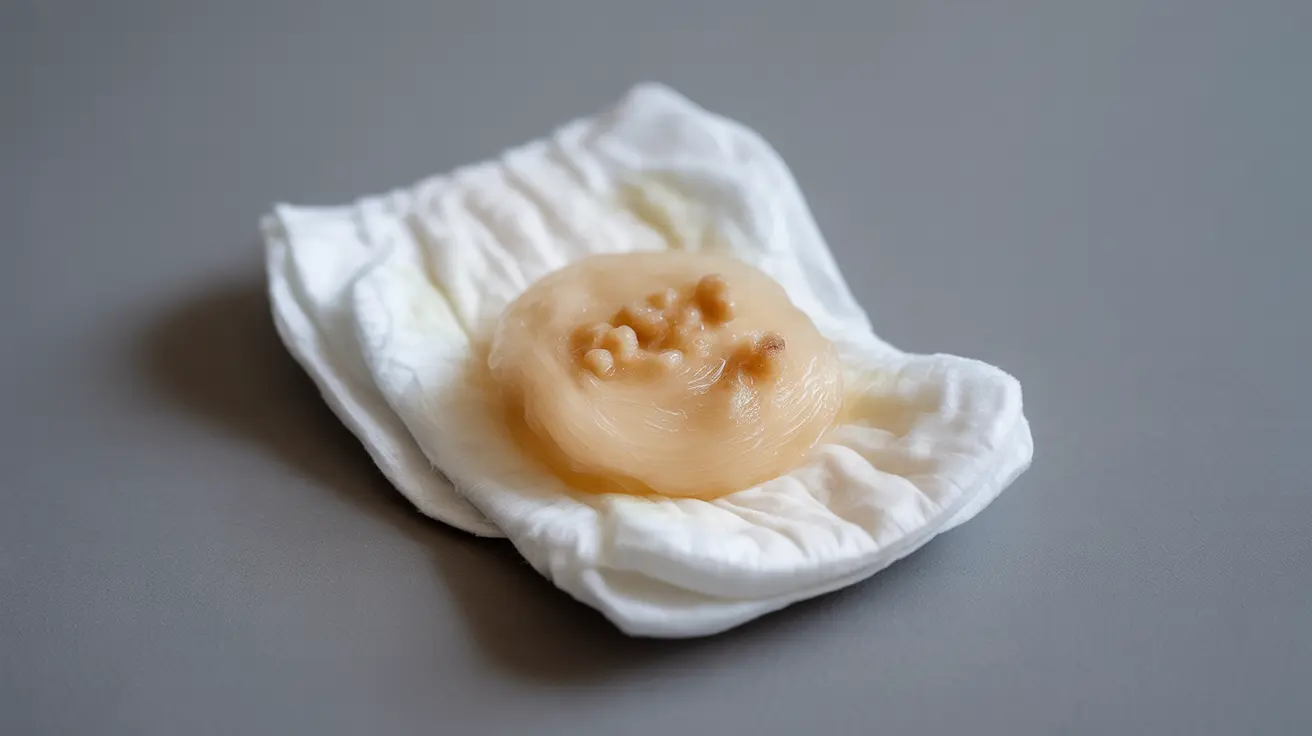As a parent, checking your baby's diaper can provide important insights into their health. While finding mucus in your baby's poop might be concerning, it's essential to understand that some amount of mucus is normal. This comprehensive guide will help you understand when mucus in baby stool is typical and when it might signal a need for medical attention.
Mucus typically appears as clear or whitish stringy strands in your baby's stool. While occasional mucus is usually harmless, knowing the various causes and warning signs can help you make informed decisions about your baby's health.
What Normal Mucus in Baby Poop Looks Like
Normal mucus in baby stool typically has several distinctive characteristics:
- Clear or slightly white in color
- String-like or gel-like consistency
- Small amounts mixed with regular stool
- Occasional occurrence rather than persistent
It's important to note that breastfed babies may naturally have more mucus in their stools compared to formula-fed babies, which is generally not a cause for concern.
Common Causes of Mucus in Baby's Stool
Normal Digestive Functions
The digestive system naturally produces mucus to help stool pass through the intestines smoothly. This normal process can sometimes result in visible mucus in your baby's diaper.
Dietary Factors
Several diet-related factors can contribute to mucusy stools:
- Changes in breastfeeding patterns
- Introduction of new foods
- Mother's diet (for breastfed babies)
- Formula changes
Medical Conditions
Sometimes, mucus in baby poop can indicate underlying conditions:
- Viral or bacterial infections
- Food allergies or sensitivities
- Inflammatory conditions
- Lactose intolerance
Warning Signs to Watch For
While some mucus is normal, certain symptoms warrant medical attention:
- Blood in the stool
- Excessive amounts of mucus
- Diarrhea lasting more than 24 hours
- Signs of dehydration
- Fever
- Significant changes in feeding patterns
Prevention and Management
Several strategies can help manage mucus in baby stool:
- Keep detailed notes of feeding patterns
- Introduce new foods slowly
- Maintain good hygiene practices
- Stay consistent with formula brands
- Monitor your diet if breastfeeding
Frequently Asked Questions
What does mucus in my baby's poop look like and when is it normal?
Mucus in baby poop typically appears as clear or whitish stringy strands mixed with stool. It's normal to see occasional mucus, especially in breastfed babies. However, frequent or excessive amounts may require medical evaluation.
What are the common causes of mucus in baby poop?
Common causes include normal digestive processes, dietary changes, breastfeeding variations, infections, food allergies, and sometimes teething. Most cases are harmless and resolve on their own.
How can I tell if mucus in my baby's stool is due to an infection or a food allergy?
Infections often come with additional symptoms like fever, irritability, or changes in appetite. Food allergies typically cause other symptoms such as rash, fussiness, or vomiting. If mucus persists or comes with other symptoms, consult your pediatrician.
When should I contact a doctor about mucus in my baby's poop?
Contact your doctor if you notice blood in the stool, excessive mucus, persistent diarrhea, signs of dehydration, fever, or if your baby shows signs of discomfort or significant changes in feeding patterns.
Can teething or breastfeeding cause mucus in my baby's stool?
Yes, both teething and breastfeeding can cause mucus in baby stool. Teething can increase saliva production, which may lead to more mucus in stool. Changes in breastfeeding patterns or the mother's diet can also affect stool consistency and mucus content.




